A study from PwC forecast that the live music industry would be worth $31 billion worldwide by 2022 if it weren’t for the pandemic. In the U.S., the live sector alone accounted for 48% of total music-industry revenues in 2019, outpacing the recorded-music sector. Long story short, the live sector is an industry within the music industry.
I recently wrote a piece for Cherie Hu’s Water & Music publication, How the touring industry will use data in 2021 — even in a pandemic, providing guidance about how professionals use data in the live sector. During the research phase, I realized how data flows in this sector were even more complex than I thought. Ticketing platforms, promoters, venues, festivals, agents, bookers, and artist managers all collect and use data. On top of that, hybrid virtual events, live streaming and privacy regulations are now reshaping relationships between them: who owns what? Who needs access to what data? I even got lost at some point :) That's why I summed it all up in a Data Cheat Sheet to help you navigate this live universe within the music industry.
Since a picture is worth a thousand words, Marie and I designed an illustrated version as well to describe data relationships between players of the live sector. As lines get blurrier between them and the recording industry, it’s a good time to review our basics to understand this ever-changing landscape.

How to read this chart
Ticket sales sit at the very center of this chart. It’s a goal and KPI shared by any player involved in the sector. All parties must define:
- their own strategies to achieve ticket sales (outlined colored circles)
- data they own (colored circles)
- external KPIs they need to get their job done effectively (outer circles)
Thanks to all the ground work done in the industry, data is now accessible and made actionable by several data tools that I will mention below. For more details regarding how to use these KPIs and tools, read the full guide on Water & Music.
Ticket sales
Incumbent ticketing platforms provide not only primary KPIs about sales, such as:
- Tickets sold,
- Capacity percentage,
- Seating chart,
- Gross revenue,
- Time of purchase,
- Buyers personal information,
- sometimes ticket transfers.
but also secondary KPIs regarding the event marketing (see below)
Tools: Eventbrite, Ticketmaster, Seated,...
Event marketing
Ticketing platforms like Eventbrite and Ticketmaster enable promoters to add pixels to track where sales come from, so that marketers can optimize their digital advertising investments according to which channel shows the best conversion rates.
The COVID-19 pandemic reshaped the event promotion structure. It gave more power to artists and labels, who often act as the promoter as well, through live streaming events. Data collected from virtual events can provide significant leverage when physical shows will happen again (email, D2F stores, advertising...).
KPIs include:
- Pre-sale registrations,
- Ad campaigns performance,
- Sales channels,
- Sales channels conversion rates.
Tools: Audience Republic, Audiencetools, Arenametrix, ....
Touring history
Cherie Hu wrote about this in how booking agents use (and don't use) data (highly recommended reading). In her words an artist’s touring history is “by far the most crucial kind of data that agents reference in their day-to-day decision-making.”
However, depending on the granularity you require, you may find out that complete touring history (ticket sales, time of sales, sales channels, attendance, fan contacts, artist contracts, fan behavior during the event, …) is dispatched between at least three players.
For example, while managers and agents “know about tours months in advance of them ever going on sale … promoters are often the last ones in that chain owing, in the most part, to the bidding processes, despite being the folks with the biggest job to do” said Sammy Andrews, Digital Marketer, in Music Week.
Tools: Pollstar, Bandsintown, Songkick, ...
Fan behavior during the event
Data collection during live events primarily serves several purposes:
- Making sure that logistics and operations are running smoothly, and that the event is profitable,
- Learning more about fan behavior during the show to optimize future shows and to develop targeted marketing campaigns after the show,
- Complying with sanitary regulations with regards to the COVID-19 pandemic.
KPIs include:
- Attendance
- Time of entry
- With whom the fan attended
- Contact tracing (COVID)
- Seating plan
- Purchases
- Merch purchases
- Time of purchases
Tools: TicketMaster SmartEvent, Aloompa, Appmiral, atVenu, ...
Artist fandom and local footprint
Gauging and anticipating demand for shows remains a challenge. Understanding where fans are and what makes them willing to see a show can go a long way to anticipate and build demand.
KPIs include:
- Facebook, Instagram fans per city
- DSP Streams & listeners per city
- Local airplay
but also secondary KPIs such as:
- Bandsintown trackers
- Local charts
- Local playlists
A side note about live streaming: the meaning of ‘local’ marketing takes a different shape online: In Diana Gremore’s words, Business Intelligence Analyst at Paradigm Talent Agency, “instead of events being geographically local, they are local to online communities.”
Tools: Social networks analytics, Soundcharts, Chartmetric, Google Trends, ..
About data sharing and ownerships
In the chart, arrows represent data that is potentially shared. Data that is actually being shared depends on the promoter’s relationship and contract with the ticketing company, and on the artist management / agent relationship and contract with the promoter.
It is imperative that data collection be organized carefully, as exchanging data between third parties is under GDPR/CIAA regulations to protect privacy. Artists and their teams need to make sure that they have the right to use the data collected in the contracts they form with their partners, at least for their own marketing purposes. Partners also need to make sure they comply with data protection laws, so that the artist can be legally granted access that they need.
The Music Managers Forum (MMF) published a Fan Data Guide, which is a great support to understand where fan data flows from ticket sales to event attendance. They also built a data checklist to highlight items you should be aware of when dealing with promoters as an artist or a manager.
Guide by Julie Knibbe & Marie Cebrian















